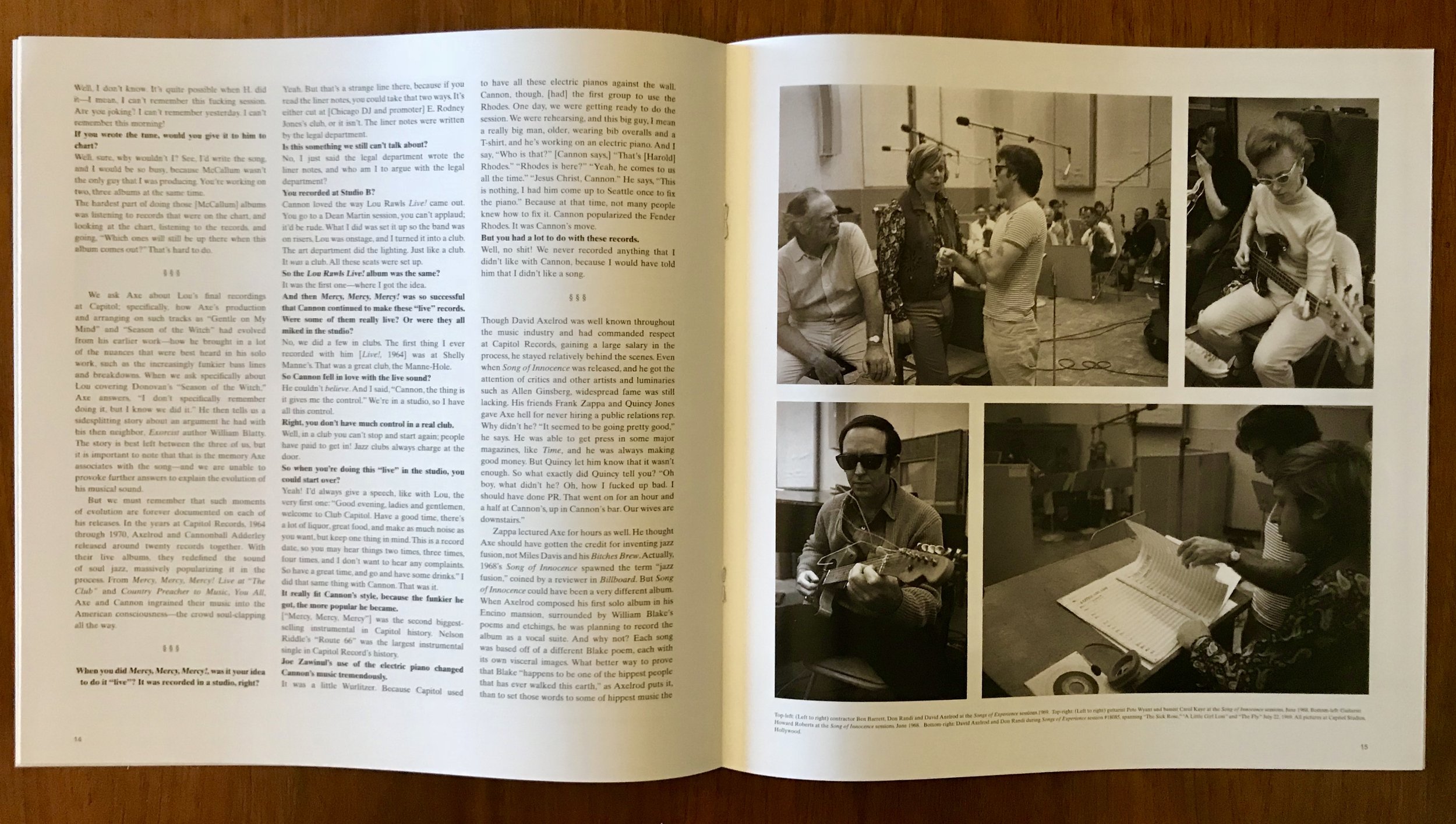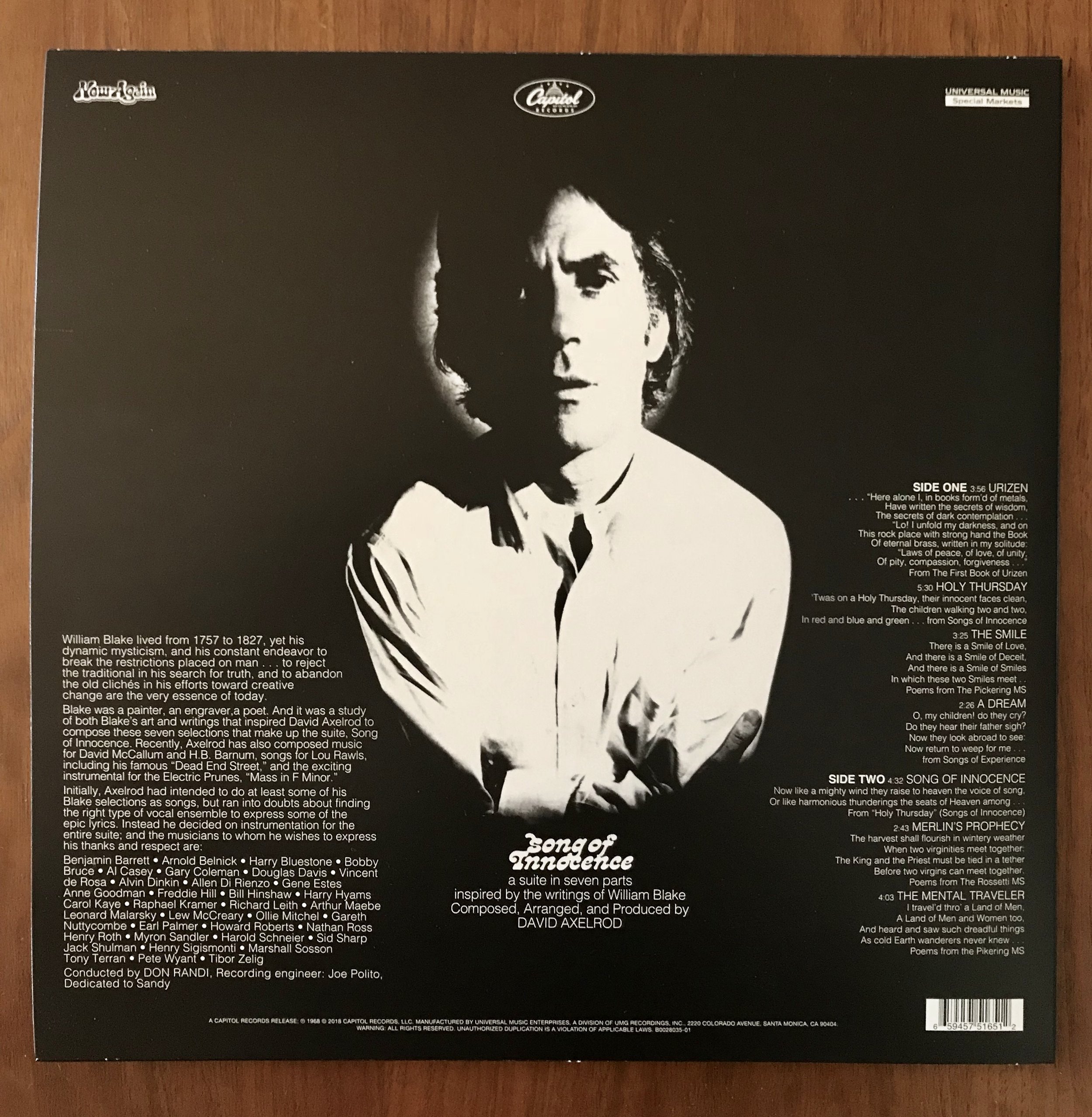No one is king like him
By 1968, David Axelrod had been a veteran in the music industry but held an in-house producer role at Capitol Records for only around five years.
Success on projects with hard bop artist Cannonball Adderley as well as with soul singer Lou Rawls — and then as a composer and arranger on forward-looking albums on Reprise from West Coast garage-psych act The Electric Prunes — yielded an opportunity at Capitol, where label president Alan Livingston called for a record similar to the moody Axelrod-authored Electric Prunes' Mass in F Minor LP.
"(Axelrod) would deliver the great, psychedelic album that Livingston wanted in 1968's Song of Innocence, based around the poetry of William Blake," writes Now-Again Records founder and music journalist Eothen "Egon" Alapatt.
In the liner notes of his label's 50th anniversary reissue of Axelrod's solo debut, Alapatt explores the origins of the composer's cinematic instrumental LP, which has long been revered for its spacious and innovative funk- and jazz-infused textures by beloved hip hop producers such as A Tribe Called Quest's Ali Shaheed Muhammad as well as visionary turntablist DJ Shadow.
Axelrod wrote Song of Innocence in one week.
He utilized the now-well known Wrecking Crew session musicians — and broke with 1960s pop tradition by actually crediting them on the sleeve — as well as an orchestra during Capitol's Los Angeles studio sessions to build music around Blake's 18th century poems. The results are sonically luminous hybrids of psychedelic, pop, and soul, each bearing hallmarks of symphonic and jazz music.
Witness the influence of the latter when the introduction of the primary melody in "Holy Thursday" rolls into a flurry of improvised solos — vibraphone, drums, piano, and frenetic fuzzbox guitar. Positioned amid classical and blues write-ups, a Billboard blurb in the fall of 1968 called Song of Innocence "chock-full of mysticism, creativity, and change."
"It is, for me and for many, Axe's masterpiece," writes Alapatt.
Alapatt's essay on Axelrod and Song of Innocence is included in the nearly 30-page booklet that is paired with the reissued LP, which is representative of a direct transfer from Axelrod's original EQ'd Capitol tapes. The liner notes feature an interview with the artist co-conducted by music writer Brian DiGenti and a number of late 1960s-era photographs from studio sessions (some of which ran in DiGenti's Wax Poetics last spring).
In 2017, Axelrod died of lung cancer at age 85. Now-Again — which has my ear as frequently as The Numero Group does with respect to its valuable archival work — will reissue his whole Capitol Records trilogy — Song of Innocence, Song of Experience, and Earth Rot. The first of the three LPs, a "suite in seven parts," is available now via Rappcats.
"There will never be another person to do what he did," prolific hip hop producer Madlib told Wax Poetics in 2017. "The only music that sounds like the music he made as David Axelrod is music he produced for other people. No one is king like him."
Images: Now-Again Records' reissue of David Axelrod's Song of Innocence. All photos © Dominic Umile 2018. I bought my copy of Song of Innocence via Rappcats.



